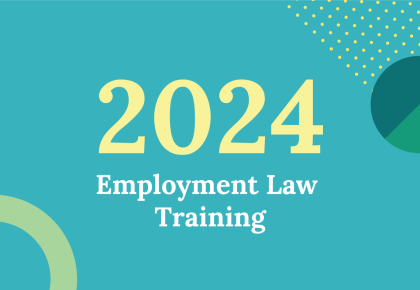Pitfalls of Workplace Investigations: Don’t Let it Happen to You
A thorough work investigation should be conducted by an individual qualified to perform such tasks. People such as attorneys, law enforcement officers, HR professionals, and countless other types of professions are trained and skilled in conducting investigations. But what if a specialist is unavailable or a call comes into your anonymous hotline (or is brought to a manager) that requires immediate attention? Such investigations often fall on supervisors and other employees who may not be specially trained in conducting a workplace investigation. It is these situations where catastrophic investigation mistakes become more common.
Objectivity is Key
Any workplace investigation should be prompt, thorough, and objective. All witnesses should be interviewed and all accounts of the situation should be well documented in detailed written notes. It is important to remember that objectivity is of the utmost importance. Where any bias is shown by the person conducting the investigation, the agency or court weighing the evidence may take that bias into account when determining which side of the story carries more weight.
Even if you are not an attorney or an HR professional, there are steps you can take to ensure that you conduct an objective investigation. First, you can seek education on the topic, either through your own research or through a brief training module on the topic. Even after becoming more familiar with investigation procedure, you must still do your best to minimize the role of bias. While you may understand your role as an agent of the organization, you must come into the investigation with an open mind, and fully aware that things happen even in the best workplace cultures. Remaining objective will allow you to more properly follow the road map to an effective investigation.
Keys to an Effective Investigation
In addition to remaining objective, you must follow the key tenets of an effective investigation so as to minimize the potential for making a fatal mistake. The following is a basic roadmap for safe and effective gathering of information following a complaint made by someone within your organization:
A. Follow Proper Interview Timelines
First, investigators must follow standard interview timelines. The most common method of handling the interview process is to have a detailed interview with the complaining party first (devoid of leading questions that indicate bias), followed by the accused, any key witnesses to the situation, and finally the complaining party again (in light of information gained from other parties). This should set the stage for an effective file that can be evaluated by yourself before making an official recommendation or response.
B. Strictly Follow Organizational Protocol
Next, your organization should have an investigation protocol written in its code of conduct or employee handbook. This procedure should be strictly followed in all cases so as to eliminate any inference of bias in the process. Should the organization not have an official policy, ensure that you seek guidance from someone with authority to make decisions before embarking on the investigation (no matter how urgent the matter).
C. Document all Findings in Writing
Lastly, it is critical that you effectively document your findings. Do not delay in making the report, as all of the information you discover will be fresh in your mind just after you conduct the interviews that make up the investigation. Include dates of all conversations, as well as the job titles and other demographic information of witnesses and parties. When making a finding, do not be hasty in your determination, but take a few hours to evaluate what you have learned and how the report looks following the investigation. Doing so lends greater objectivity to the investigation as a whole.
Failure to Follow Procedure Leads to Damaging Results
A real-life example of an investigation gone wrong occurred in a case involving disability discrimination that was prosecuted by the EEOC. In the case, the EEOC found that the investigator’s failure to interview key witnesses identified by the complaining party unfairly hampered the complainant’s ability to prove a case of discrimination. The agency remanded the case for further investigation and the decision weighed heavily in the ultimate outcome. The failure at the investigation stage ultimately led to facts being missed that caused the organization to suffer significant monetary damages.
As you can see, mistakes made in the investigation process can make a bad situation worse. By taking reasonable steps to empower your managers to conduct better investigations, you will not only be better positioned to understand and do something about complaints raised by employees, but you will also help your organization be best positioned to make fair and objective decisions following the investigation process. For this reason, it is critical that your workforce have the information it needs to be effective in their fact-finding missions.
All Managers Can Benefit from Learning More About Conducting Effective Investigations
The investigation process is a difficult yet critical part of the listen up mentality that is critical to a healthy workplace culture. By teaching all managers to properly conduct investigations, your organization will be better prepared when a complaint comes in and there is not a seasoned investigator ready to promptly handle the job. All too often facts must be found immediately after the incident, and there may not be time to call in an attorney or HR professional prior to the situation diffusing. It is absolutely critical to provide effective education to all supervisors on how to conduct an effective investigation so as to refrain from making a bad situation worse.Syntrio has recently released two courses aimed at helping employees of all levels conduct effective workplace investigations. We would appreciate the opportunity speak with a member of your staff to see how our solutions can help you have your managers and supervisors best prepared to conduct investigations objectively, thoroughly and promptly. We welcome your call, and look forward to working with you on this very important area.


